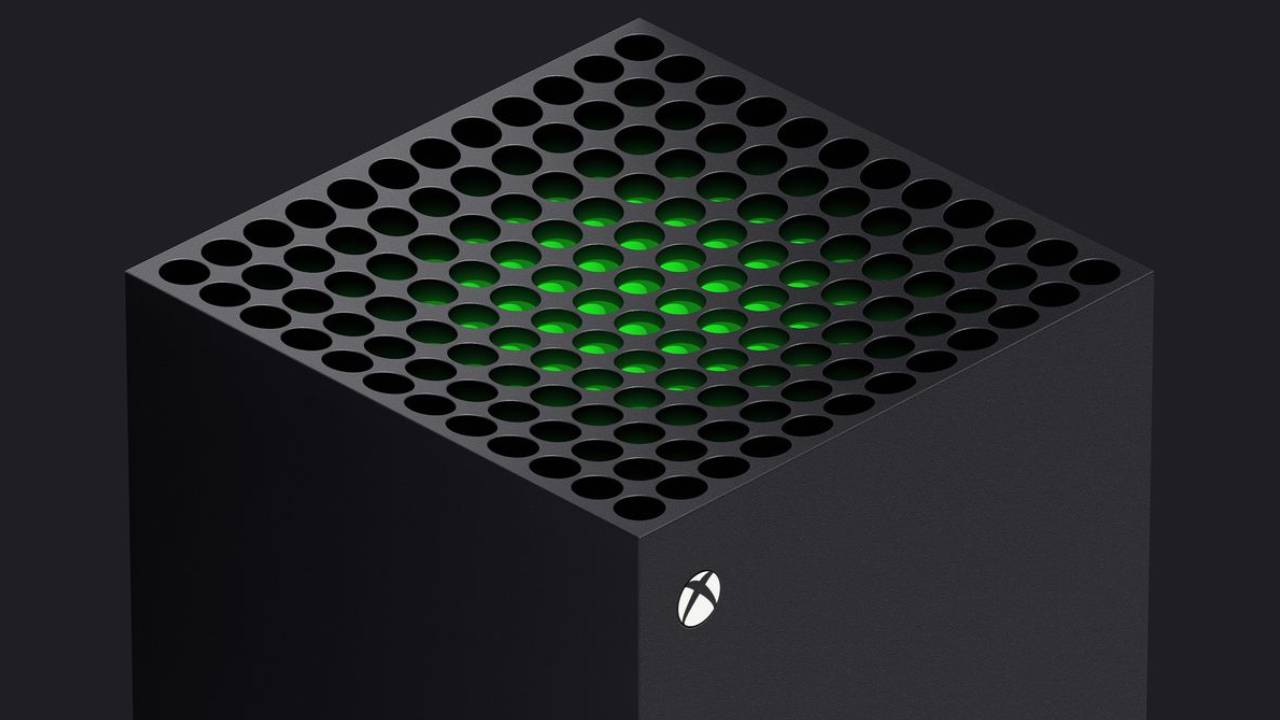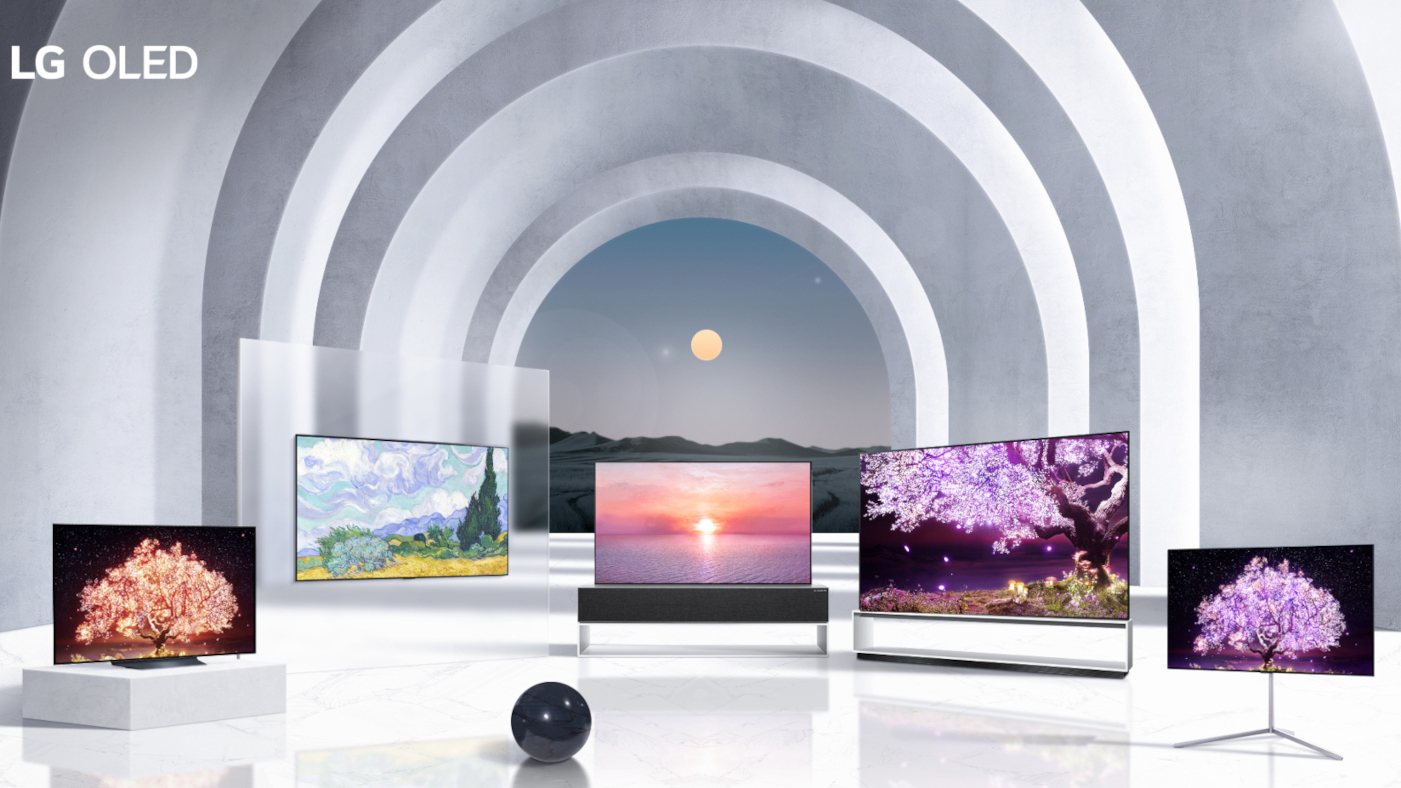LG wants you to play Xbox Series games on its OLED TVs – here's why you should
LG OLED gaming TVs are getting some help from Dolby Vision

It looks like LG OLED TVs may become even better gaming TVs in the near future, after LG confirmed that Dolby Vision gaming at 4K/120fps was “in testing” for the Xbox Series X.
The potential of Dolby Vision – a dynamic HDR format that helps to calibrate a TV’s picture with shot-by-shot metadata – is long proven, though it’s still a new player in the world of gaming.
That’s all changing in 2021, it seems, after TV reviewer and host of HDTVTest, Vincent Teoh, confirmed the news from LG, tweeting that “more details about models will be shared soon” – though the electronics maker will likely prioritize 2021 OLED TVs like the LG C1 and LG G1 Gallery Series. (It’s worth noting that the entry-level LG A1 doesn’t come with HDMI 2.1, so likely won’t carry the same kind of support as its more premium siblings.)
I asked LG re Xbox Dolby Vision 4K120 support on its OLEDs. LG said:"The Dolby Vision feature is currently in testing & LG is working closely with its partners to support functionality (including 4K@120Hz) on its 2021 OLEDs soon. More details about models will be shared soon."May 14, 2021
It’s an important feather for LG’s cap, cementing its place as a seller of quality gaming TVs – even if there may be some disquiet if the support doesn’t come to 2020 models like the LG CX. It’s made all the more exciting by Xbox’s latest announcement on Dolby Vision gaming, too, with it now coming to the Xbox Series X and Xbox Series S for all Xbox Insiders – having finished an initial round of alpha testing for the technology, with the rest of the Xbox Series player base set to get the feature later in 2021.
That means Dolby Vision is coming, and you’ll no doubt want to get your head around what it is, and what difference it makes, by the time it comes to your favorite Xbox Series X games.
Get ready to transform your gaming experience with full-spectrum visuals! Rolling out to Xbox Insiders this week: Dolby Vision for gaming on Xbox Series X|S. pic.twitter.com/iU2RktHvPGMay 14, 2021
What’s all this fuss about Dolby Vision?
Right now, Dolby Vision is only supported on Xbox console streaming apps, like Netflix and Disney Plus – though its arrival in games can only elevate the experience on offer, for gaming TVs that are able to take advantage of the format. (You won’t get it on PS5, and Sony has eschewed support for both Dolby Vision HDR and Dolby Atmos audio.)
Our senior gaming writer, Adam Vjestica, wrote earlier in the year that, “Like Dolby Atmos, we’ve found that games that offer native support for the technology provide far more impressive results than those that simply use it as pass-through, though the benefits are still apparent. We expect that some games will specifically be designed with Dolby Vision in mind in the future, but it’s unclear whether the HDR format will simply be applied by the console to every title as is the case right now.
Sign up for breaking news, reviews, opinion, top tech deals, and more.
“Dolby claims that Dolby Vision will make games look more realistic and lifelike compared to HDR10 as it can produce 40x brighter highlights, 10x deeper black levels and up to 12-bit color depth. It should also adjust HDR visuals on a frame-by-frame basis using dynamic data, which will provide a more refined picture.”
- What is Dolby Vision HDR?
A glut of gaming TVs
Since the launch of the PS5 and Xbox Series X in late 2020, TV makers have quickly been getting into gear to accommodate demand for the new console’s upgraded capabilities.
The most important one to pay attention to is HDMI 2.1 support, given that it allows for 4K gameplay at a smooth 120Hz – or, if you have an 8K TV, 8K gameplay at 60Hz. While there aren’t a huge number of games that support the former as of yet (or any that support the latter), that is slowly changing, with a handful of PS5 games that support 120fps and a mountain of Xbox Series X games letting you push your new consoles and gaming TVs to their limits.
You’ll find widespread HDMI 2.1 support on LG TVs, new Samsung TVs, Panasonic TVs and Sony TVs, albeit largely on high-end sets. VRR (variable refresh rate) is a key HDMI 2.1 technology, but one that isn’t always bundled in, so make sure you’re getting that to ensure smooth gameplay too. Currently, only Xbox consoles support VRR while PS5 does not.

LG’s OLED TVs are great choices for new gaming TVs, with sub-1ms response times, incredible contrast and color, and even a Game Optimizer overlay (new for 2021 on its webOS smart platform) for quickly swapping between picture modes, VRR, and the like. Support for Nvidia G-Sync is a great addition for those keen to use an LG TV as monitor for their gaming PC, though our computing editor Bill Thomas points out that it’s quite limiting for those whose PC doesn’t sport a Nvidia GPU.
Those fearing burn-in on OLED TVs needn’t fear these days either, with screen shift technologies that subtly move the image onscreen to prevent singular pixels outputting at the same intensity for long periods of time – a potential danger with games, specifically, given they often utilize reticles and HUDs that stay in the same place. Philips, too, is now utilizing anti-burn-in tech that helps to detect logos or static content and reduce the intensity of light in those areas, "without compromising the output of other parts of the screen".
It’s also worth noting that LG OLEDs only support 10-bit color HDR, whereas Dolby Vision technically supports up to 12 bits – though the strong HDR contrast credentials of OLED screens means you shouldn’t notice the absence of those additional two bits.
LG TVs don’t feature a huge amount of built-in audio, either, and it may be worth considering a Panasonic or Samsung screen for a gaming TV able to give a real punch to the sound too. The Panasonic JZ2000 packs in side-firing speakers and a total 125W output, while Samsung’s multi-directional OTS audio system is best implemented on its Neo QLED TVs, like the QN95A. In general, those wanting a bright screen at all costs shouldn’t be eyeing up an OLED TV, either – even if the LG G1 is upping the level of brightness possible on today's OLEDs.
- Where to buy Xbox Series X: all the retailers checked

Henry is a freelance technology journalist, and former News & Features Editor for TechRadar, where he specialized in home entertainment gadgets such as TVs, projectors, soundbars, and smart speakers. Other bylines include Edge, T3, iMore, GamesRadar, NBC News, Healthline, and The Times.